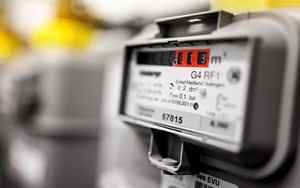(Finance) – The European Commission is working on a series of changes to EU regulations for counter the liquidity crisis of the European energy markets And intervene on margin calls that hinder the operations of companies in the sector. In fact, the surge in energy prices forces companies specializing in the sale of gas and electricity to deposit extra funds to cover payments related to hedges, known as margin calls.
The current regulatory framework provides the necessary guarantees, such as marginalization obligations for offsetting between sellers and buyers, so that in the event of default by one party, the other market participants are protected. Collateral requirements ensure financial stability and help to reassure financial markets, but the sharp rise in prices has forced energy companies to make higher amounts of cash collateral available to clearing counterparties, as margin calls increased in line with prices.
The European energy market is currently being challenged by margin calls of at least $ 1.5 trillion, according to estimates by the Norwegian oil giant Equinor. “This is just dead capital and tied to margin calls – said Helge Haugane, senior vice president for gas and power at Equinor during the Gastech conference in Milan – If companies need to put up so much money, it means that the liquidity in the market runs out and this is not good for this part of the gas markets “.
On 9 September the Energy Council called on the Commission to elaborate emergency liquidity instruments ensure sufficient collateral is available to market participants to meet margin calls and counter the increase in futures market volatility, and consider revising the relevant guidelines to supplement collateral rules. The Commission, in collaboration with theEuropean Securities and Markets Authority (ESMA) andEuropean Banking Authority (EBA), is working towards this, setting up a number of options to ensure that the financial system supports actions to alleviate current difficulties while preserving financial stability.
In particular, according to a document published today by the EU executive, the Commission has invited ESMA to evaluate appropriate changes to the regulation on guarantees. These variations could concern theextension of the list of eligible collateral and the conditions under which the Bank guarantees could be accepted as guarantees. ESMA is invited to submit concrete by 22 September.
The Commission also invited the EBA, in cooperation with ESMA and the Single Supervisory Mechanism (SSM), to assess how banks currently provide collateral transformation services (i.e. using a type of collateral to take cash). The EBA is invited to report proposals by 29 September.
ESMA and the EBA are also invited to consider ways to improve the transparency and predictability of initial margin models towards customers and the ways in which a central counterparty can call up the intra-day margins. Finally, given the increase in energy prices in 2022, the Commission invited ESMA to assess the adequacy of the recommendation of increase the compensation threshold to € 4 billion for raw materials and other derivatives.
